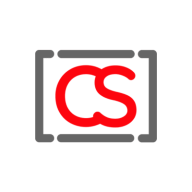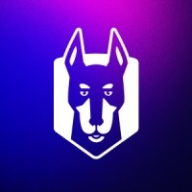

Snyk and CodeSonar compete in the software security and code quality market. Snyk has an edge with its ease of integration and comprehensive database.
Features: Snyk stands out for its simplicity and ease of integration, making it ideal for DevOps workflows. Its robust vulnerability database and Slack notifications enhance visibility and responsiveness. CodeSonar excels in detecting runtime errors and provides thorough code analysis, making it valuable for maintaining code quality.
Room for Improvement: Snyk could improve by adding static and dynamic application security testing and expanding language support. Its notification system requires refinement to lower false positives and improve granularity. CodeSonar needs to enhance support for programming languages beyond C/C++ and focus more on security features alongside defect checks.
Ease of Deployment and Customer Service: Snyk offers flexible deployment across public, private, and hybrid clouds, but some reports suggest its technical support could improve responsiveness. CodeSonar, while mainly on-premises, restricts deployment flexibility yet is praised for quick and effective technical support.
Pricing and ROI: Snyk's premium pricing is seen as expensive, but its developer-focused features are regarded as worth the investment, offering a fast ROI by detecting vulnerabilities early. CodeSonar's high price is justified by its thorough analysis, but it may be costly compared to open-source solutions, though it efficiently manages complex projects.
| Product | Market Share (%) |
|---|---|
| Snyk | 6.5% |
| CodeSonar | 1.4% |
| Other | 92.1% |


| Company Size | Count |
|---|---|
| Small Business | 5 |
| Midsize Enterprise | 1 |
| Large Enterprise | 2 |
| Company Size | Count |
|---|---|
| Small Business | 20 |
| Midsize Enterprise | 9 |
| Large Enterprise | 21 |
GrammaTech enables organizations to develop software applications more efficiently, on-budget, and on-schedule by helping to eliminate harmful defects that can cause system failures, enable data breaches, and ultimately increase corporate liabilities in today’s connected world. GrammaTech is the developer of CodeSonar, the most powerful source and binary code analysis solution available today. Extraordinarily precise, CodeSonar finds, on average, 2 times more serious defects in software than other static analysis solutions. Designed for organizations with zero tolerance for defects and vulnerabilities in their applications, CodeSonar provides static analysis for applications where reliability and security are paramount - widely used by software developers in avionics, medical, automotive, industrial control, and other mission-critical applications. Some of GrammaTech's customers include Toyota, GE, Hyundai, Kawasaki, LG, Lockheed Martin, NASA, Northrop Grumman, Panasonic, and Samsung.
Snyk excels in integrating security within the development lifecycle, providing teams with an AI Trust Platform that combines speed with security efficiency, ensuring robust AI application development.
Snyk empowers developers with AI-ready engines offering broad coverage, accuracy, and speed essential for modern development. With AI-powered visibility and security, Snyk allows proactive threat prevention and swift threat remediation. The platform supports shifts toward LLM engineering and AI code analysis, enhancing security and development productivity. Snyk collaborates with GenAI coding assistants for improved productivity and AI application threat management. Platform extensibility supports evolving standards with API access and native integrations, ensuring comprehensive and seamless security embedding in development tools.
What are Snyk's standout features?Industries leverage Snyk for security in CI/CD pipelines by automating checks for dependency vulnerabilities and managing open-source licenses. Its Docker and Kubernetes scanning capabilities enhance container security, supporting a proactive security approach. Integrations with platforms like GitHub and Azure DevOps optimize implementation across diverse software environments.
We monitor all Application Security Tools reviews to prevent fraudulent reviews and keep review quality high. We do not post reviews by company employees or direct competitors. We validate each review for authenticity via cross-reference with LinkedIn, and personal follow-up with the reviewer when necessary.